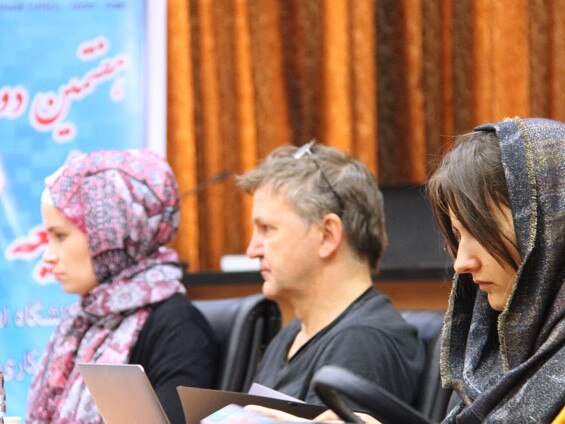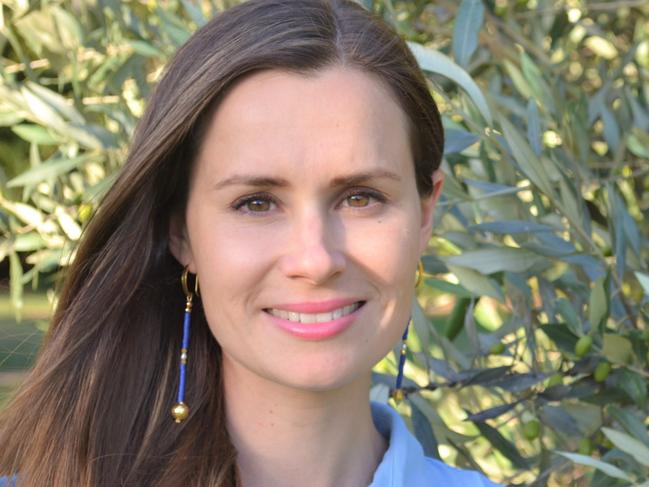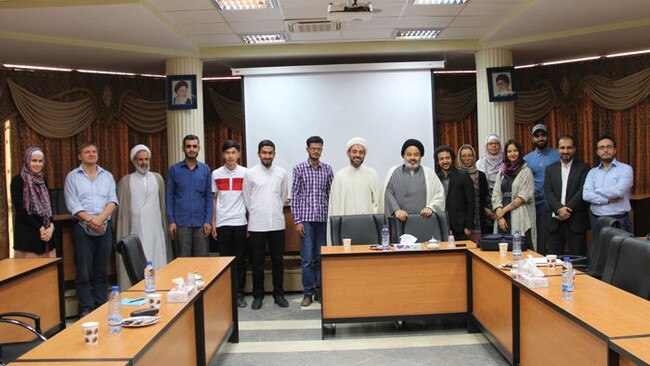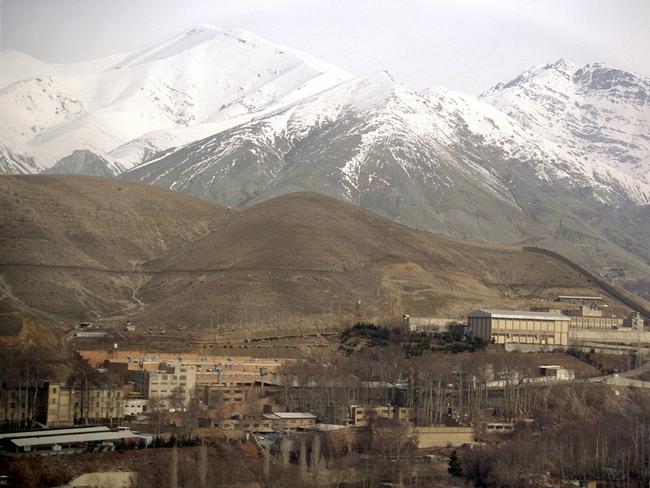Prison conditions in Iran for Australian academic Dr Kylie Moore-Gilbert have been eased but fears for her health remain
Iranian authorities have lessened the harsh prison conditions placed on Australian academic Dr Kylie Moore-Gilbert but there are still grave concerns for her health.
National
Don't miss out on the headlines from National. Followed categories will be added to My News.
- Freed journalist reveals horror conditions of Iran jail
- International efforts to free Aussie jailed in Iran escalate
- Moore-Gilbert says Iran tried to recruit her as a spy
Australian academic Kylie Moore-Gilbert has been given access to books inside Iran’s notorious Evin prison, sources have confirmed.
The University of Melbourne Islamic Studies expert remains in the prison’s solitary confinement unit 2a, where she marked her 33rd birthday this week.
She has been kept under difficult conditions and endured months where she was not able to speak with her family, which led her to go on at least five hunger strikes.
The University of Cambridge graduate was also denied access to lawyers, according to letters she wrote from inside the prison that were leaked to News Corp Australia in January.

The Islamic Republic’s High Council for Human Rights said this week that Dr Moore-Gilbert was now receiving “access to medical and other services like other prisoners.”
“She has books to read, and whenever requested, her needed books will be procured and delivered to her,” the council said.
News Corp Australia has independently verified the claims from a source inside Iran.
Dr Moore-Gilbert’s family released a rare statement this month, where they said they loved her and missed her.

The family also denied reports that she had attempted suicide and said they had been getting more access to phone calls with her.
However, Dr Moore-Gilbert, who was sentenced to 10 years’ jail on spying charges she denies, remains on track to become the longest serving female prisoner in unit 2a, which is controlled by Iran’s hard line Islamic Revolutionary Guard Corps.
She has pleaded in letters to be let into the general section of the prison instead of being in the unit which has cells that are only 3m by 2m.
The Australian Department of Foreign Affairs and Trade (DFAT) has said that her case was “one of our highest priorities, including for our Embassy officials in Tehran.”
MORE NEWS
Cop charged over George Floyd killing as riots grow
Inside the bizarre world of Oz music icon accused killer

“We do not accept the charges upon which Dr Moore-Gilbert was convicted and continue all efforts to have her returned to Australia as soon as possible,” DFAT said in a statement.
The delays in diplomatic efforts have led to other voices pushing Dr Moore-Gilbert’s case.
The Middle East Studies Association wrote to Ayatollah Ali Khamenei, Supreme Leader of the Islamic Republic of Iran this month.
The group, which represents academics from across the world, demanded that Dr Moore-Gilbert’s treatment improve.
“We respectfully ask you to please intervene in this very critical case and address Dr Moore-Gilbert’s protests to rectify her intolerable situation,” the group wrote.

“Given her prolonged isolation in harsh conditions, we ask for immediate attention to her case to prevent further deterioration of this scholar’s mental and physical health.”
Friends of Dr Moore-Gilbert, an Australian-UK dual national, also released a statement this week through the ABC demanding more action from Foreign Minister Marise Payne.
There were hopes that some 3000 prisoners would be released under a clemency ruling by Khamenei this month, however DFAT did not respond to questions about whether Dr Moore-Gilbert would be among them.
stephen.drill@news.co.uk
Originally published as Prison conditions in Iran for Australian academic Dr Kylie Moore-Gilbert have been eased but fears for her health remain

